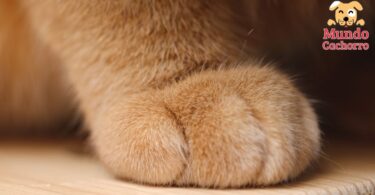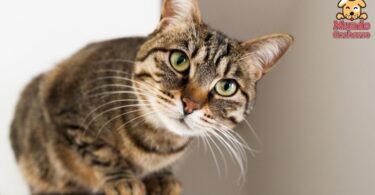There are several reasons why your cat may become depressed: a move, changes in family members, changes in routine and others. The symptoms of depression may not be so easy to recognize and may even be confused with an organic disease. While it is important that you consult your veterinarian if your feline’s behavior changes, here are some signs that could show you that your cat is depressed.
Indice
Recognizing a cat that is depressed
Cats may give off certain signals when they are depressed. It is worth learning how to interpret the signs that a depressed cat will have.
- Low energy. A cat in a depressed mood will have lower energy levels than usual. You will sleep longer than usual. If you notice that your cat sleeps more than usual, pay attention because it could mean sadness.
- Poor appetite. If your cat loses interest in food, it could be a symptom of sadness. Generally, a cat that is feeling sad or depressed will not feel like feeding.
- Changes in meowing. When a cat is sad, it may meow with a deeper tone than usual. Occasionally, kittens that are unhappy may purr more than usual, as a way of finding comfort. If your kitty meows more or less than usual, pay attention
- Aggression. A depressed cat may act with increased aggressiveness and react to situations
Why a cat gets depressed
Cats can become depressed because of loneliness. Although they are independent animals, continuous solitude can affect them.
In addition, although there is a belief that cats do not bond, this is not true. In fact, cats often build bonds with their owners and the environment. The breaking of these bonds for any circumstance can bring sadness to the cat.
Another cause may be that you have an injury that does not allow you to perform normal activities. This can make you quite sad.
It should not be ruled out that a cat’s sadness may be caused by a disease that should be evaluated by the veterinarian.
Be aware that a cat that is constantly exposed to stress may develop emotional problems. For example, a cat that suffers frequent punishment or does not receive enough food could result in depression.
Finally, a cat that spends too much time indoors may develop depressive behavior.
How to encourage it
Often the solution is quite simple: paying more attention to your cat and spending more time with him might be enough.
It is also necessary to evaluate if we are scolding or punishing him too much, or if he is exposed to stressful situations that we could avoid. Talk to your cat, show her affection with caresses and it is possible that problems can be easily solved.
Another solution is that if your cat’s sadness is caused by boredom, you can offer him a variety of toys to keep him entertained. It may be possible to solve the sadness with the company of another cat. However, this should be carefully evaluated because some cats do not like company and may become even more depressed.
Image courtesy of rare-gallery.com, all rights reserved.







